Abstract
This case study describes library education programs that serve the University of New Mexico School of Medicine, known for its innovative problem-based learning (PBL) curricular track. The paper outlines the specific library instruction techniques that are integrated into the curriculum. The adaptation of library instruction to a PBL mode of medical education, including the use of case studies, is discussed in detail. Also addressed are the planning processes for the new PBL curriculum scheduled for implementation in 1993, including the activities of library faculty and staff and the probable new role of the library in the new curriculum.
Full text
PDF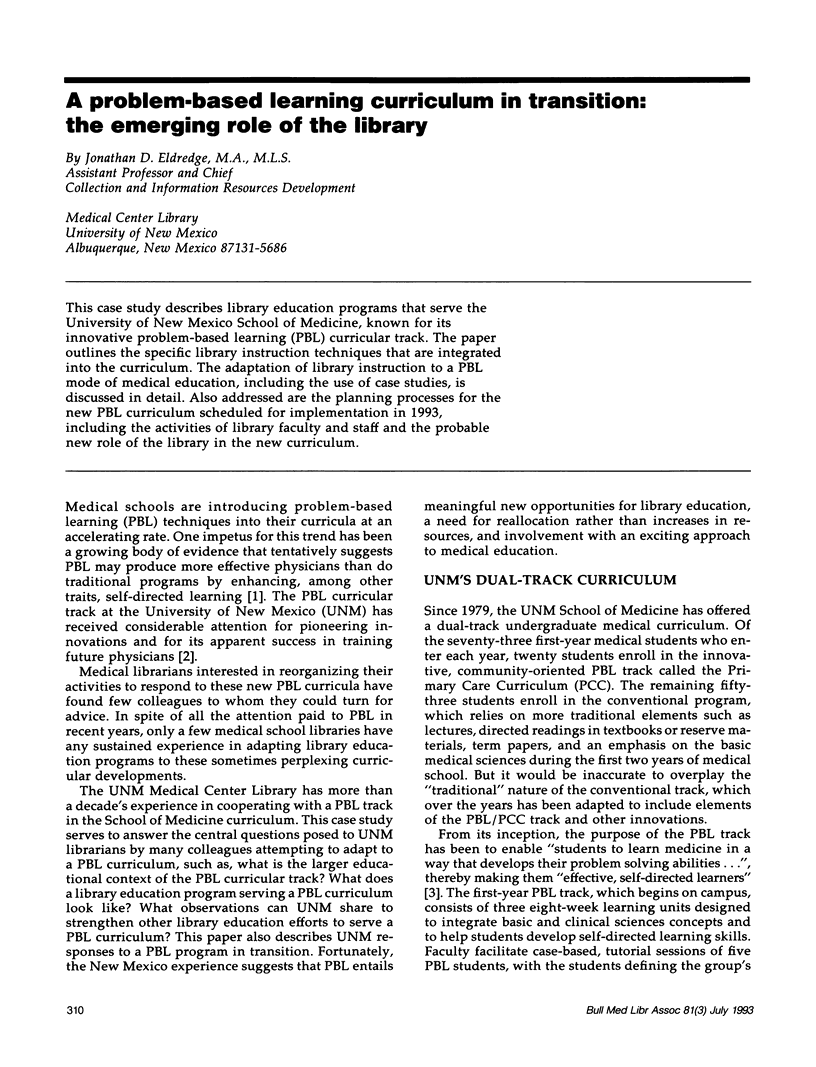
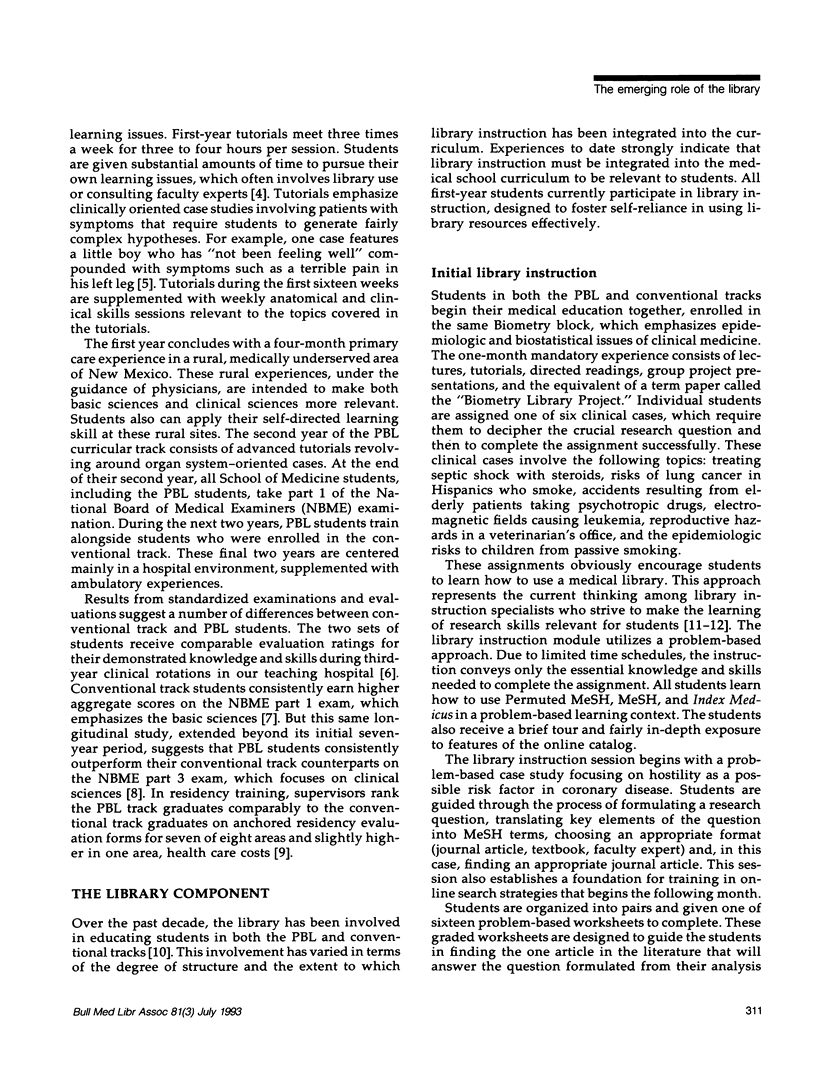
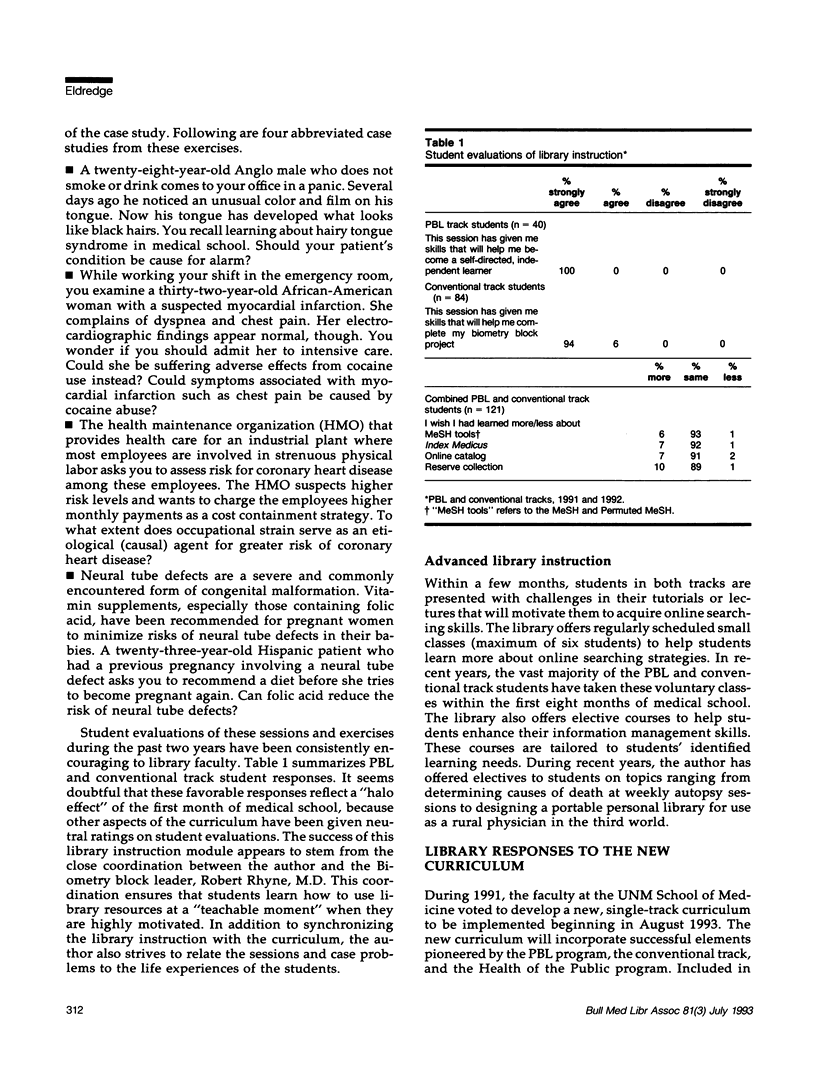
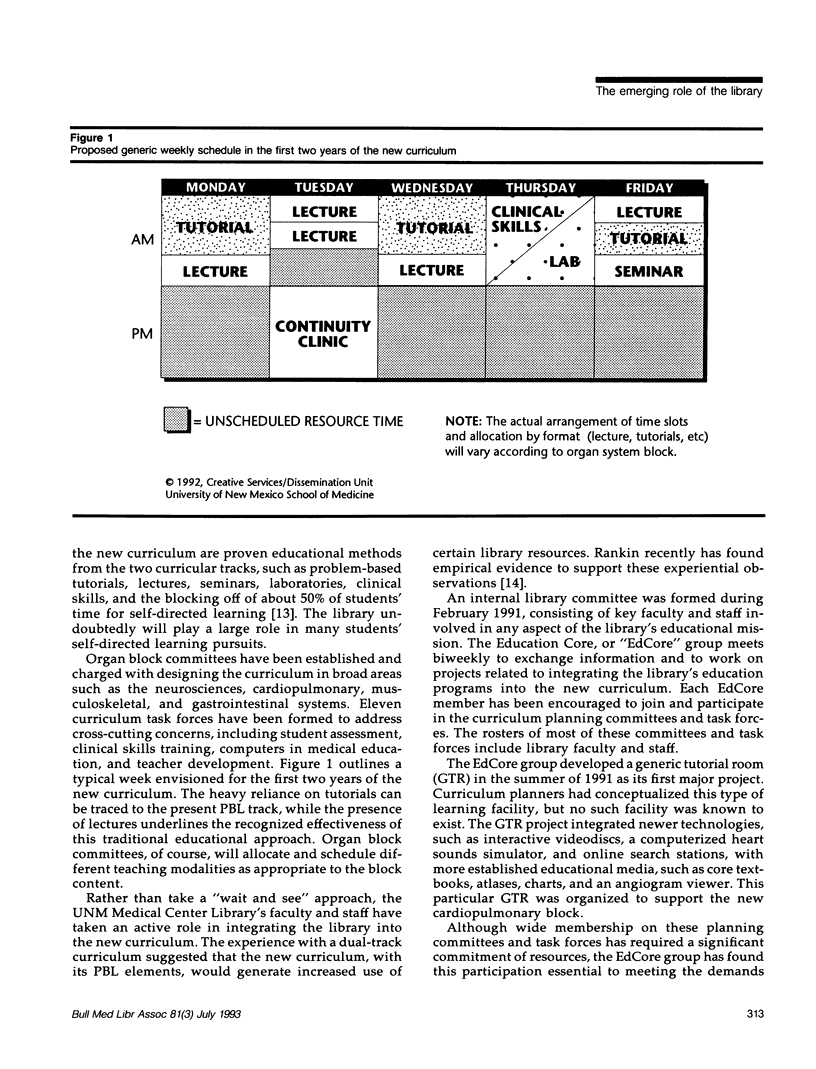
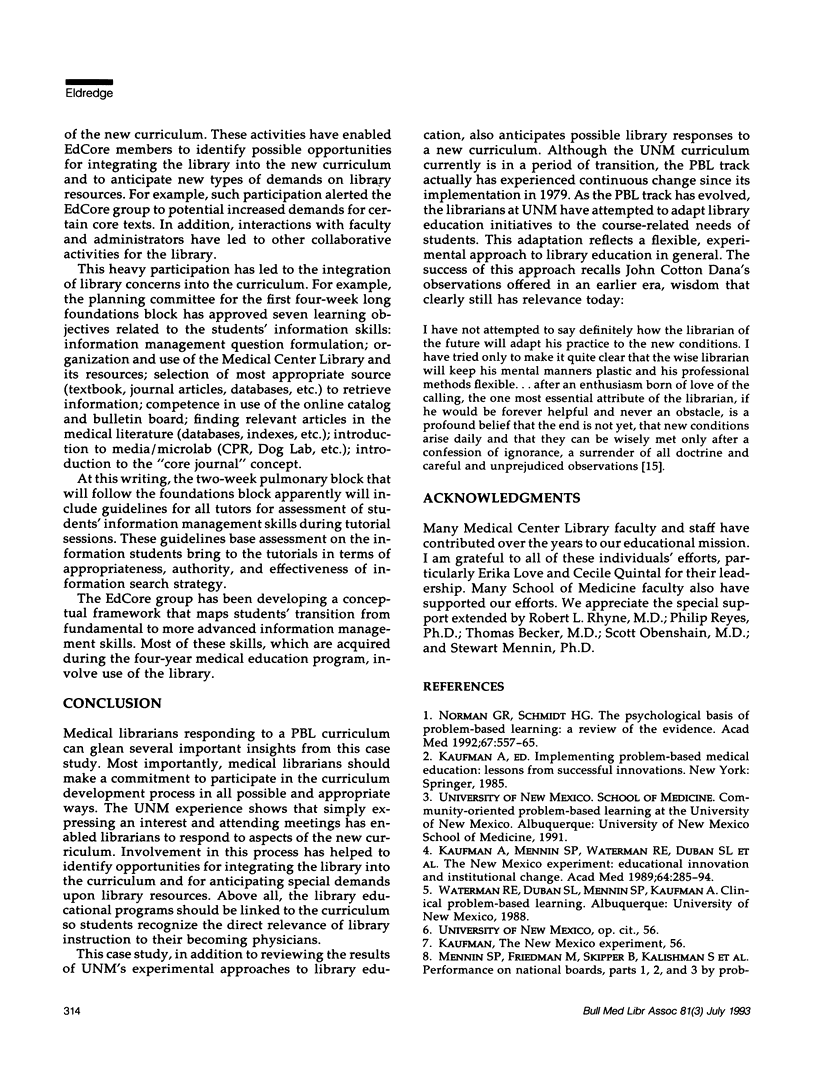
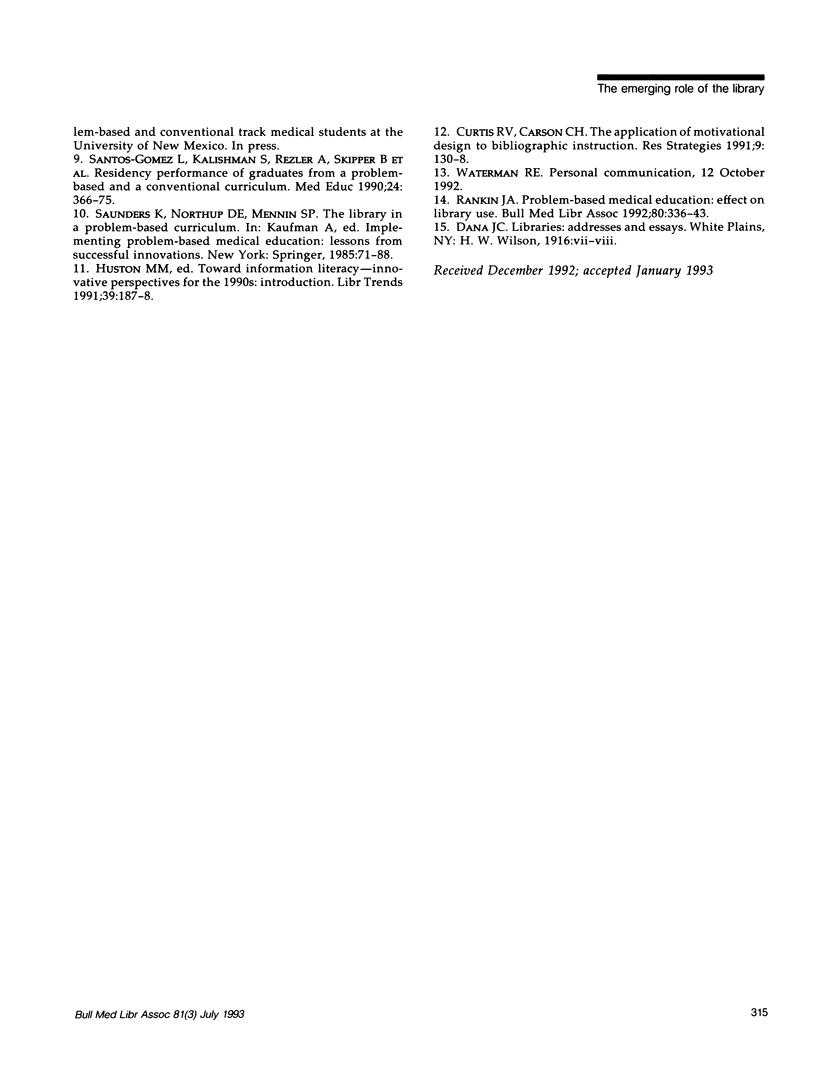
Selected References
These references are in PubMed. This may not be the complete list of references from this article.
- Kaufman A., Mennin S., Waterman R., Duban S., Hansbarger C., Silverblatt H., Obenshain S. S., Kantrowitz M., Becker T., Samet J. The New Mexico experiment: educational innovation and institutional change. Acad Med. 1989 Jun;64(6):285–294. doi: 10.1097/00001888-198906000-00001. [DOI] [PubMed] [Google Scholar]
- Norman G. R., Schmidt H. G. The psychological basis of problem-based learning: a review of the evidence. Acad Med. 1992 Sep;67(9):557–565. doi: 10.1097/00001888-199209000-00002. [DOI] [PubMed] [Google Scholar]
- Rankin J. A. Problem-based medical education: effect on library use. Bull Med Libr Assoc. 1992 Jan;80(1):36–43. [PMC free article] [PubMed] [Google Scholar]
- Santos-Gomez L., Kalishman S., Rezler A., Skipper B., Mennin S. P. Residency performance of graduates from a problem-based and a conventional curriculum. Med Educ. 1990 Jul;24(4):366–375. doi: 10.1111/j.1365-2923.1990.tb02453.x. [DOI] [PubMed] [Google Scholar]



